Vice Chairman of the National Assembly's Committee on Science, Technology and Environment Ta Dinh Thi said that Vietnam can absolutely become a model of ecological agriculture in the region and the world.
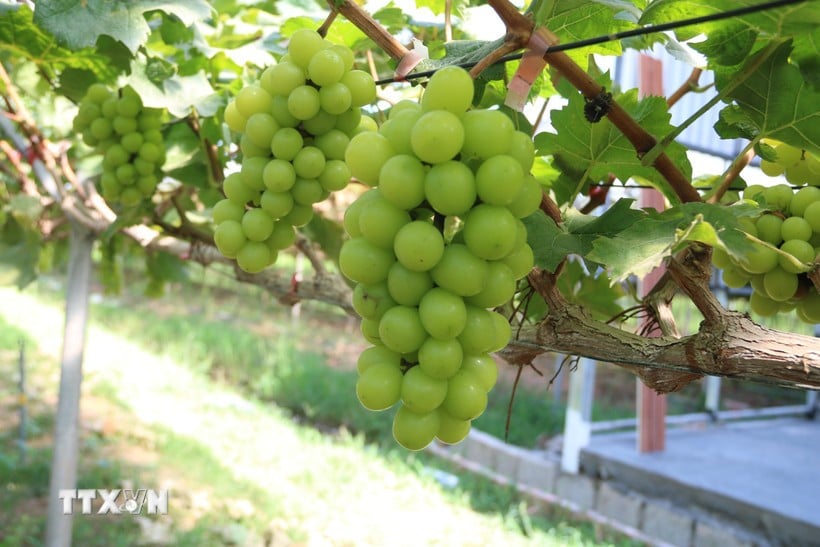
According to Vice Chairman of the National Assembly's Committee for Science , Technology and Environment Ta Dinh Thi, ecological agriculture is the "path" to help Vietnam both fulfill its international commitment to strive to achieve the "Net Zero" target by 2050, and implement the Paris Agreement and the Global Biodiversity Framework (GBF); ensuring food security associated with ecological security in the coming time.
“I believe that Vietnam can absolutely become a model of ecological agriculture in the region and the world ,” Mr. Thi emphasized.
Sharing at the Conference “Promoting ecological agriculture and transforming food systems to respond to climate change, enhance biodiversity and improve livelihoods,” held on the afternoon of October 6, Mr. Nguyen Do Anh Tuan - Director of the Department of International Cooperation (Ministry of Agriculture and Environment) emphasized that ecological agriculture in Vietnam is a long journey from awareness to action.
“From the initial explorations in reality, the first pilot models in the Red River Delta, Mekong River Delta, Central Highlands, Son La,... we have made a strong shift to replication and dissemination in national programs, projects and policies. And up to now, ecological agriculture has been institutionalized, becoming a strategic orientation in the development of agriculture and rural areas in Vietnam,” Mr. Tuan emphasized.
Speaking at the conference, Vice Chairman of the National Assembly's Committee on Science, Technology and Environment Ta Dinh Thi also emphasized that in the context of the world facing three parallel crises, climate, biodiversity and food security, ecological agriculture is identified as not only a new farming method, but also an inevitable development orientation of the country.
“Converting to ecological agriculture is no longer an option, but a mandatory path if we want to build a self-reliant economy, a rich and beautiful countryside and a sustainable living environment for future generations,” said Mr. Thi.
Mr. Thi emphasized that from the rice-fish, rice-lotus-fish, clean straw mushroom, agro-forestry models, to new-style cooperatives in the Southeast region, there is clear evidence: Ecological agriculture increases farmers’ income, reduces production risks and reduces emissions by up to 70% compared to traditional farming methods. That also shows the “double benefit” between economy and ecology, livelihood and conservation.
With that in mind, Mr. Thi emphasized that farmers must be at the center of the transformation. According to him, any policy, whether national or local, is only meaningful when farmers have the motivation and opportunity to participate.
“Therefore, perfecting a system of stable market policies, supporting green finance, training digital skills, and creating direct links with businesses are the keys to keeping them committed to the ecological path,” said Mr. Thi.
On the international side, Mr. Vinod Ahuja - FAO Representative in Vietnam, also emphasized: “This event marks an important milestone in our common journey to build sustainable and resilient food systems in Vietnam. By promoting stronger public-private partnerships and mobilizing resources, we can build on the country’s achievements and ensure that Vietnam’s agriculture sector is fully equipped to cope with the impacts of climate change, towards a better future for the people.”
Mr. Thibault Ledecq, Conservation Director of WWF-Vietnam, said that WWF-Vietnam believes that food production is not only about meeting human needs, but can also strongly promote conservation work.
According to WWF representatives, by prioritizing sustainable land use planning and management, promoting ecological agricultural models that are compatible with nature, and building close cooperation between parties in the supply chain, we can develop sustainable markets and expand green finance.
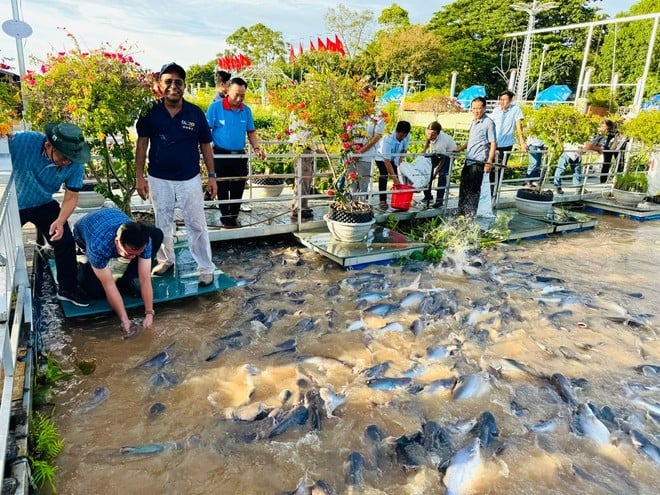
“This will create a positive cycle where prosperity is linked to ecosystem restoration, leading to a future where people and nature thrive in harmony,” said Mr. Thibault Ledecq.
Building an “ecological nucleus” in a sustainable value chain
Sharing a message at the conference, Vice Chairman of the National Assembly Le Minh Hoan affirmed that ecological agriculture is not just a farming method.
"That is how we listen to and respect nature... That is the long-term vision for Vietnam to fulfill global commitments on climate change, towards net zero emissions by 2050, and 'plant' the future for future generations," Mr. Hoan emphasized.
In that spirit, Vice Chairman of the National Assembly's Committee on Science, Technology and Environment Ta Dinh Thi outlined three major orientations for the coming period.
First, Mr. Thi proposed to improve the legal system to shape a synchronous policy framework for ecological agriculture. In particular, laws on land, resources, environment, science, technology and innovation and green credit will need to be designed to encourage landscape approaches, circular economy and efficient use of natural resources.
“Institutionalizing ecological agricultural strategies ensures no overlap, no formality, and measurable results,” Mr. Thi emphasized.
Second, Mr. Thi mentioned promoting science, technology and innovation. He emphasized that agricultural transformation cannot be successful without digital transformation, applying carbon measurement technologies, sustainable water and land management, or ecological traceability.
“Therefore, we need to prioritize investment in research and transfer of green technology and applied biotechnology, so that Vietnam can not only be a follower, but can also become a creator of a typical ecological agricultural model of the tropics,” said Mr. Ta Dinh Thi.
The third orientation, according to Mr. Thi, is to promote multilateral cooperation and mobilize social resources. Ecological agriculture is a field that requires the joint efforts of all parties, from the State, the private sector, financial institutions, to the international community.
Mr. Thi emphasized that Vietnam welcomes the support of WWF, FAO and development partners who have contributed to forming regional initiatives, creating the foundation for a "green economy of agriculture".
On that basis, Vietnam hopes that localities, businesses and farmers will continue to cooperate in the spirit of "co-creation - mutual benefit", so that each field and each cooperative becomes an "ecological nucleus" in the sustainable value chain.
In addition to the above orientations, Mr. Thi also expressed the view that ecological agriculture must be viewed not only as a production industry, but also as a new developing culture, where people, nature and economy go hand in hand.
“When we talk about sustainable development, ecological agriculture is the convergence of three values: climate, biodiversity and livelihoods. This journey requires long-term thinking, flexible institutions and close coordination between levels, sectors and communities,” Mr. Thi said, emphasizing that the National Assembly will continue to accompany and monitor policy implementation, ensuring that all commitments on “green, inclusive and equitable development” are implemented in a practical manner from the meeting room to the field.
“I believe that Vietnam can absolutely become a model of ecological agriculture in the region and the world,” Mr. Thi added./.
Source: https://baolangson.vn/viet-nam-co-the-tro-thanh-hinh-mau-ve-nong-nghiep-sinh-thai-tren-the-gioi-5061067.html






![[Photo] Super harvest moon shines brightly on Mid-Autumn Festival night around the world](https://vphoto.vietnam.vn/thumb/1200x675/vietnam/resource/IMAGE/2025/10/07/1759816565798_1759814567021-jpg.webp)

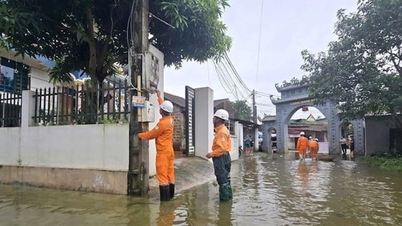

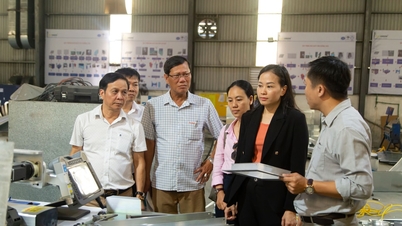












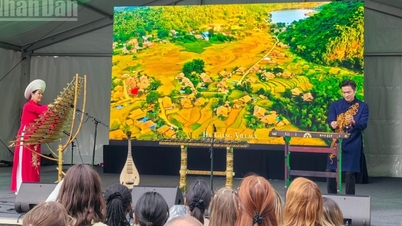
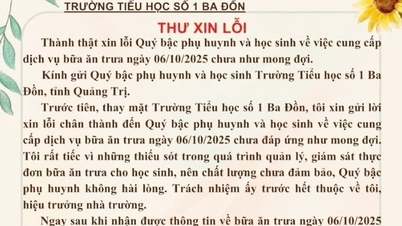
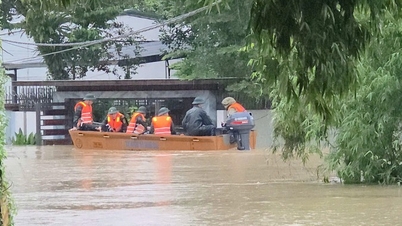

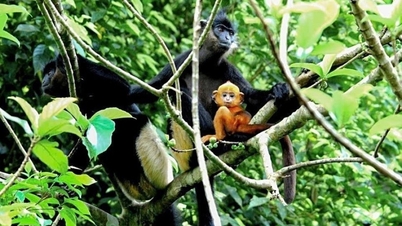


























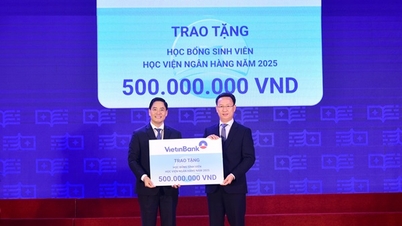









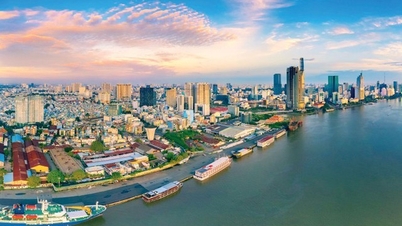





















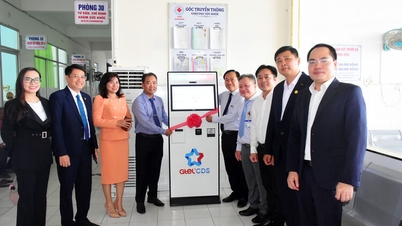












Comment (0)